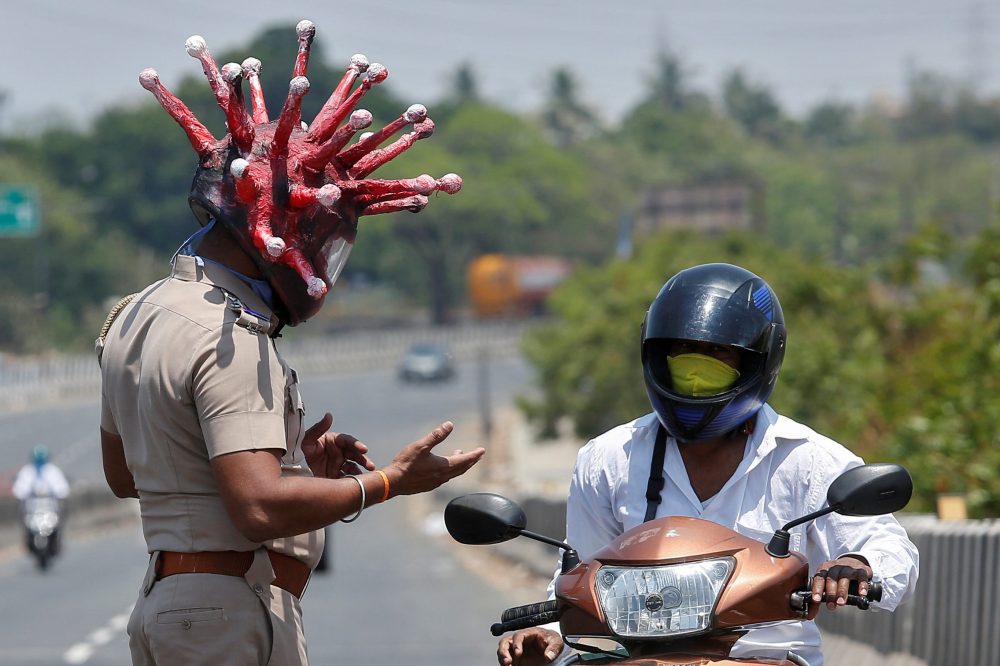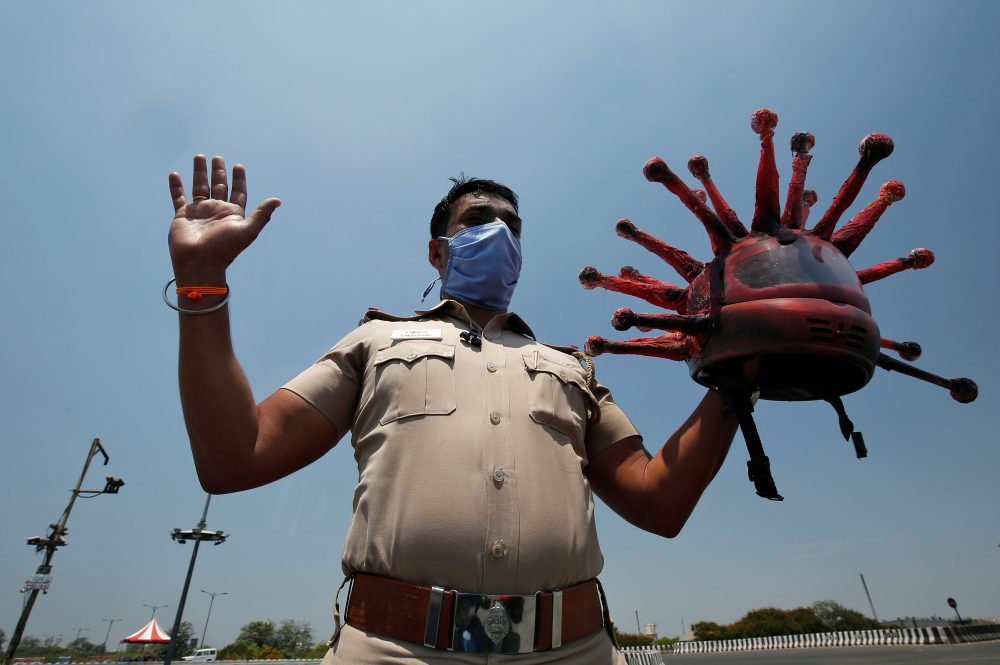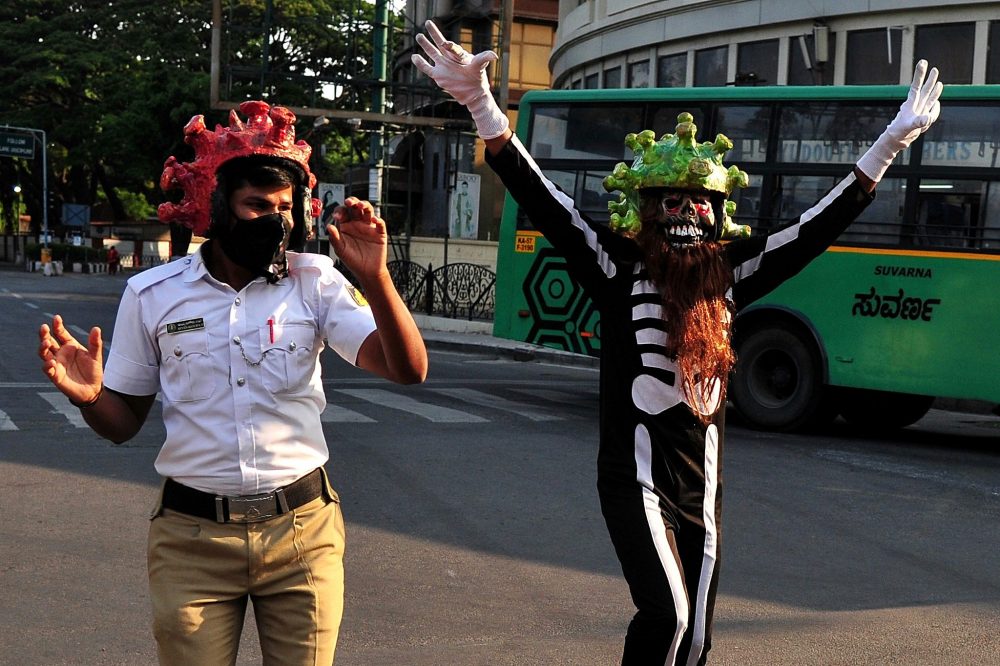Everyone’s got coronavirus on the brain right now, but no one is taking it more literally than the so-called “corona cops” in India.

Officers in multiple Indian cities have started donning big, spiky, goofy-looking red helmets that resemble the microscopic virus, in an effort to raise awareness about it during the country’s sweeping COVID-19 lockdown.
Citizens might not be able to see the actual virus outdoors, but it’s been hard to miss these officers with their spike-ball heads.
Insp. Rajesh Babu of the Tamil Nadu Police Force spent March 28 wearing one such helmet for traffic duty in the southeastern city of Chennai.
Video and photos posted online show him urging commuters to stay indoors for the country’s 21-day lockdown, often while wearing the modified motorcycle helmet on his head.
Journalist Pramod Madhav applauded Babu’s creativity in a tweet that included video of the helmet.
“Meet Chennai’s Corona cop,” he wrote. “Going an extra mile while performing his duty.”
Police in the central city of Hyderabad have also started handing out spike-ball helmets to their traffic cops in an effort to raise awareness.

Get breaking National news
They effectively staged a parade on Tuesday to show off the helmets, with officers donning the costumes on motorcycle and horseback.
Babu’s helmet in Chennai appears to be made from papier-mâché, while the Hyderabad helmets look like they’re made of foam.
Traffic police in Bangalore went one step further, with one officer donning a skeleton outfit and a creepy mask, along with a more blunted version of the spike helmet.
Police forces across India have been searching for new tactics to keep the country’s 1.3 billion citizens indoors, and those tactics haven’t always been positive.
Traffic officers in the city of Meerut have resorted to shaming lockdown violators as “friends of the coronavirus” on Twitter.
Videos circulating on social media have also shown police beating citizens with batons or forcing them to do exercises as punishment for breaking the lockdown.
Prime Minister Narendra Modi has ordered everyone in the country to stay indoors until April 15.
—
Questions about COVID-19? Here are some things you need to know:
Health officials caution against all international travel. Returning travellers are asked to self-isolate for 14 days in case they develop symptoms and to prevent spreading the virus to others.
Symptoms can include fever, cough and difficulty breathing — very similar to a cold or flu. Some people can develop a more severe illness. People most at risk of this include older adults and people with severe chronic medical conditions like heart, lung or kidney disease. If you develop symptoms, contact public health authorities.
To prevent the virus from spreading, experts recommend frequent handwashing and coughing into your sleeve. And if you get sick, stay at home.
For full COVID-19 coverage from Global News, click here.








Comments